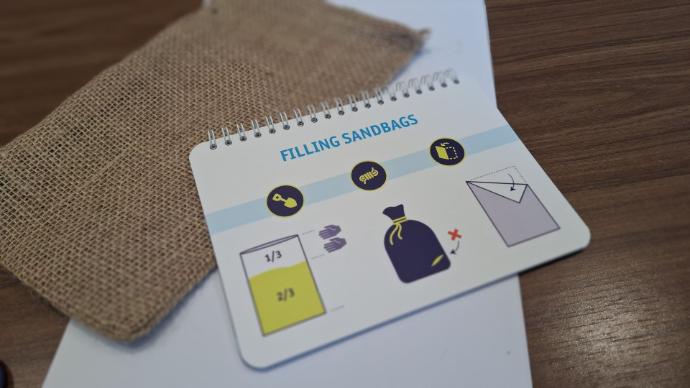On April 1 close to 70 participants from our partners and associated organisations took part in the opening plenary of the 4th Partner Meeting within the FlashFloodBreaker Partnership in Hasselt, Flanders.
In the afternoon the partnership visited the flamish village of Voeren (Moelingen) to learn how local authorities and the population react to the extreme wheather events that caused several flashfloods during the past years.
DAY 1
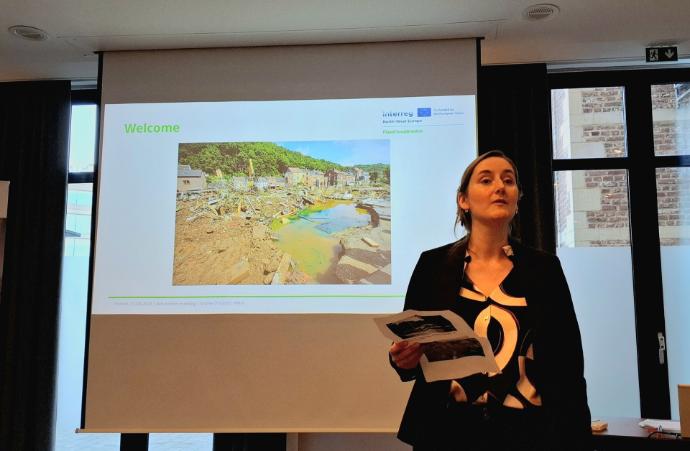
Welcomed by Sophie d´Hondt from this meeting´s host organisation VMM and Project Coordinator Marie-Édith Ploteau from Emschergenossenschaft the project community then split into three Break Out Sessions where results and developments in the fields of
- improvement of early warning systems,
- transnational training schemes and the
- involvement of residents, voluntary sector and private partners
were shared and discussed.
Early warning systems
Daniela Falter (EG) and Johan Auwerkerken (VMM) gathered the project partners among the question on how to improve the different early warning systems.
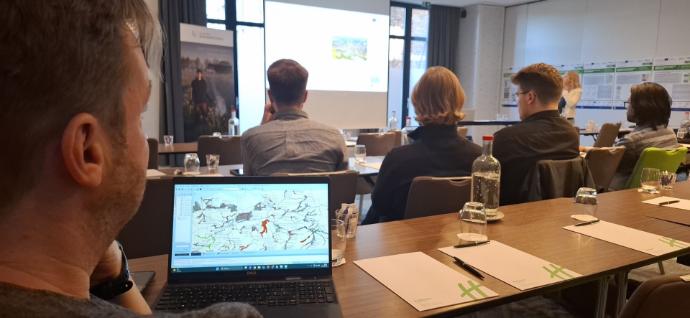
Transdisciplinary exchange
FlashFloodBreaker Partner meetings gather together represesenatives from different areas such as modelling experts or fire fighters who will be the future benefiriaries of the newest developments in the field, thus fostering the transdisciplinary exchange for better preparedness and thus resiliance againts extreme wheather events in the future.
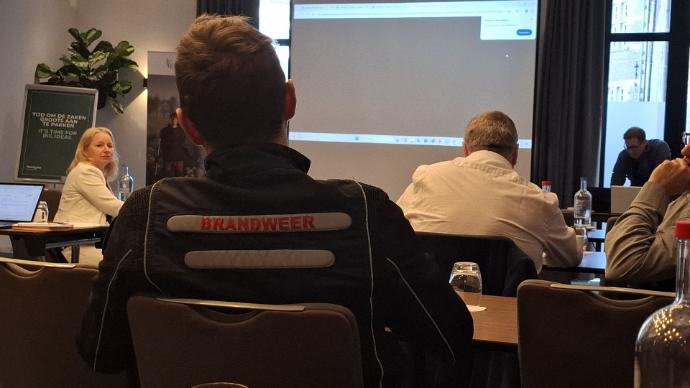
Training the trainers in a transnational way
Marianne Booltink (STOWA) and Christian von Spizcak (Duisburg Firebrigade) gathered our partners in another Break Out Session dealing with the science of sandbags, showcasing methods and techniques in an interactive exercise.
Oscar van Dam (STOWA) showcased a sandbag manual, that could put into practice among our international partners in the very Session itself.
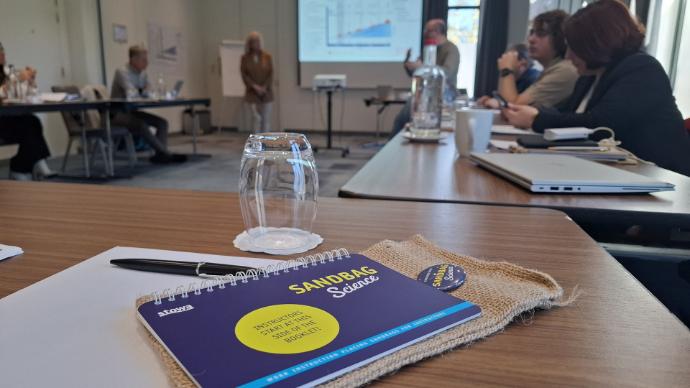
Practicing with sandbags
Oscar van Dam (STOWA) on how the sandbag miniatures he designed can be used to train the trainers to be better prepared for flashfloods
Discover hereInvolvement of residents, voluntary sector and private partners – concept and contracts
Colin Glesner (SPW) and Eelco Koohlaas (HHNK) established a co-creative discussion around the question on how to combine existing crisis mangement systems with the involvement of the private sector (businesses) , combining untrained volunteers in case of hazards as well.
As well they discussed the state of the civil society in post-crisis phase and the emotional impact that can be created by disasters.
Train members of local crisis units
In this session hosted by Telka Schneider (EGLV) participants presented and discussed different local and national approaches regarding preparation and evaluation of crisis units. This includes different checklists and scenarios that can be implemented via different methods such as serious games, podcasts, e-learning schemes or especially designed apps that follow the needs that dictate local conditions.
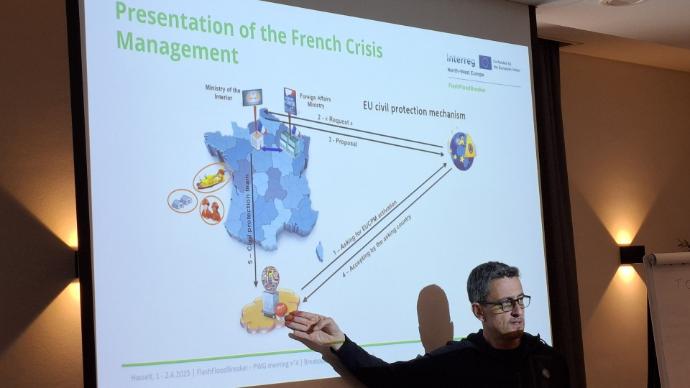
Domique Roth (Sapeurs Pompiers Moselle) ist explaining the french scheme for crisis management and its implications for the organisation in case of hazards.
AI-based flood and
impact forecast tools
In this session a actualized comparison of AI models with current traditional models was made by Adrian Almoradi from the German waterboard (LV) and Oguz Betkas from the University of Luxembourg (Uni.lu).
Represesentatives from our dutch partner HHNK presented the current improvements of their AI model considering more data and local conditions. Furthermore the Lead partner Lippeverband exposed their approach on how to conceptualize flood impact forecasting approach with AI.
The aim is in the future to able to develop an explainable AI framework for flood prediction models and an AI implementation with open source image repos- Tensor Flow. (presented by our irish partners from MTU)
